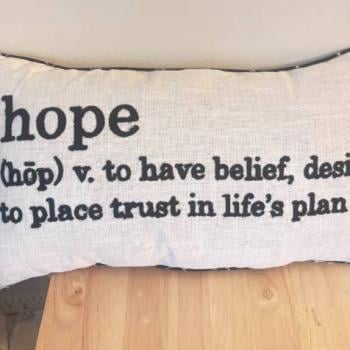
Truth is Dead?!
In 2017, Time Magazine declared that “Truth is Dead”. This article confronted us with the reality that truth as we came to know it was dead. The posing of the question “is truth dead?” was a way to show the serious nature of the situation and the concern that societies ability to come to common understanding of reality was being eroded. In this cover, Time Magazine reflected widespread anxiety about the decline of objective truth and its implications for democracy and society.
This week, I want to consider how we know what we know (epistemology) and how we must approach knowledge humbly. Is knowledge, what we know subjective? I would make the case that how we know is shaped in part by our culture, our historical context, and our religious orientation. All these factors create a subjectivity to our aquirance of knowledge.
John Wesley – The Imperfection of Human Knowledge
John Wesley’s Sermon 69, titled “The Imperfection of Human Knowledge,” centers on the biblical passage 1 Corinthians 13:9, “For we know in part, and we prophesy in part.” Wesley often used this sermon to promote the “more excellent way” of love, as described in the rest of 1 Corinthians 13. He uses the idea of imperfect knowledge to promote that Christians should focus on love, as that is a more important trait than knowledge. This sermon serves as a reminder that our current understanding is limited and that we should approach knowledge with humility, while focusing on the most important aspect of Christian life, which is love.
Wesley’s sermon highlights that:
- Human Knowledge is Limited: Our understanding, even in spiritual matters, is incomplete and partial.
- Nature of Present Knowledge: Our deepest insights are still only fragments of a greater truth, reflecting our earthly condition.
- Promise of Future Knowledge: In the afterlife, we will have perfect knowledge of God and his ways.
- Practical Implications: Recognizing our limited knowledge should lead to humility, tolerance, charity, and pursuit of a deeper understanding of God.
- Focus on the “more excellent way.“
How Do We Know? – A Reflection on Empiricist and Cartesian Thought
In a post I wrote about doubt as a spiritual practice, I offered “Doubt as a practice is related to the spiritual practice of wonder, which I have written about. In the two posts noted here, I lean heavily on my training as a Social Worker and as a Mental Health Therapist. I am heavily influenced by humanistic psychology. I am also heavily influenced by the several traditions that shape my practices as a contemplative. In both worlds, doubt and wonder hold hands and explore the depths of the known and unknown playfully.
Doubt is necessary in our relationships with one another. From the human development side of things, leaning into Erik Erikson, three stages come to mind: trust vs. Mistrust, Autonomy vs. Shame/Doubt, and Identity vs. Role confusion. In reality however, all of Erikson’s stages has the person wrestling with some form of doubt.
Reflecting on Cartesian (Descartes) and Empiricist (Locke, Hume) thought, we encounter two fundamentally different, yet influential, approaches to how we acquire knowledge. Descartes most famous for his notion of Cogito ergo sum, believed that certain truths could be arrived at through logical deduction, independent of sensory experience.”Cogito, ergo sum” (“I think, therefore I am”) exemplifies this, highlighting the certainty of self-awareness through thought. Empiricists, like John Locke, George Berkeley, and David Hume, argued that all knowledge originates from sensory experience. The concept of “tabula rasa” (blank slate) suggests that the mind is born without innate ideas, and knowledge is acquired through observation and experience.
When we doubt, and we ask questions, we allow both approaches into our life, and it is here that we grow. When we are only fed what to believe or think, with no room for questioning, we risk stagnation and dogma.
Post Truth – A Way Forward
Post-truth, a term describing the diminished role of facts and analysis in public discourse, challenges us to reconsider our approach to knowledge. It calls for a re-engagement with both rational and empirical methods to navigate the complexities of our modern world. By acknowledging the limitations of our current understanding and embracing a humble pursuit of truth, we can bridge the divide between different epistemological traditions and foster a more inclusive and thoughtful society.
In navigating through this post-truth era, where the reliability of facts is often questioned and the lines between reality and perception are increasingly blurred, it is crucial to adopt a multifaceted approach to knowledge. By integrating the Cartesian emphasis on rational deduction with the Empiricist reliance on sensory experience, we can foster a more comprehensive understanding of the world around us. This amalgamation not only enriches our pursuit of truth but also encourages intellectual humility and open-mindedness. In doing so, we can better appreciate the complexities of diverse perspectives, ultimately leading to a more nuanced and empathetic discourse in both our personal and collective endeavors.













